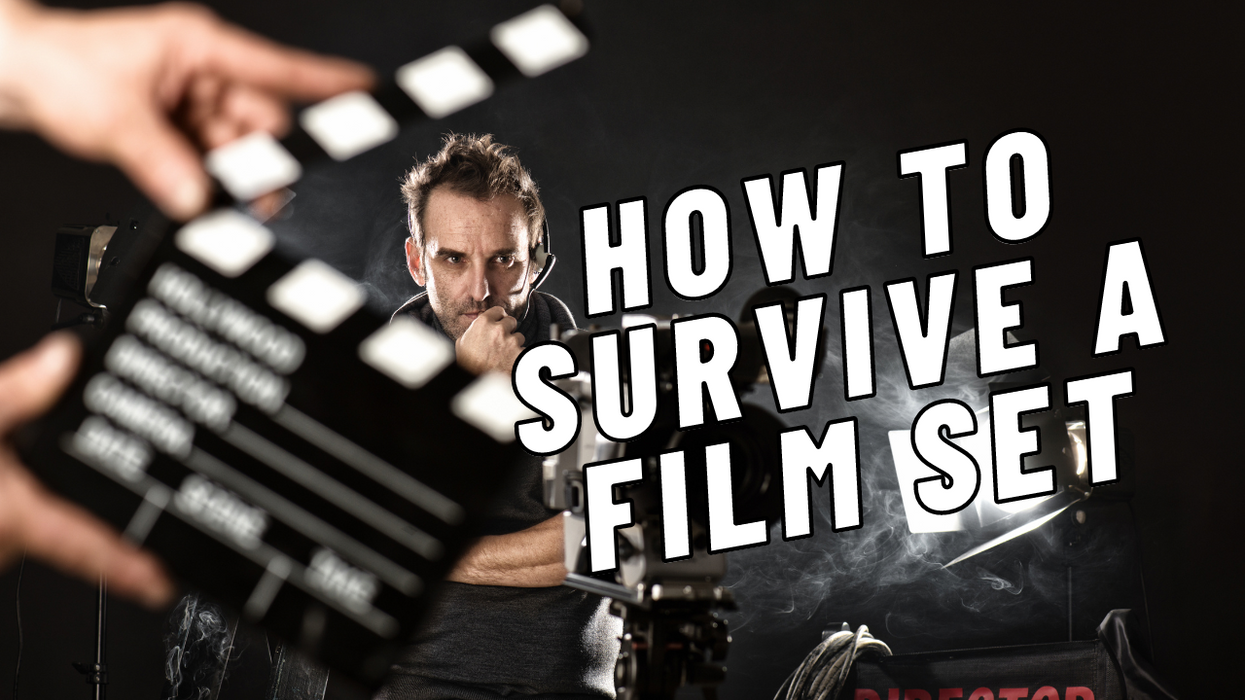Tips for Surviving (and Thriving) on Your First Film Set
I am about to state the obvious. No one is born knowing how a film set works or how to behave on one.

This post was written by Christine W. Chen.
Inevitably, everyone will have the dreaded first day. First days on set usually look like this:
You walk on set. You get assigned a walkie that you have no clue what to do with. On top of trying to not look like a complete idiot, film veterans left and right sling film jargon at you and expect you to move at their pace. It is all very overwhelming.
On my first day on set, I was a production assistant (PA) with very limited on-set experience and got asked for a "stinger." I had no clue what that was.
Luckily, our director of photography (again, had no clue what that was either) was nice enough to answer my many questions. After a lot of trial and error and jumping from set to set, I started to get the hang of it, but it took some time.
Today (more than a decade later), I am a full-time 1st assistant director (AD) and director. One of my goals is to educate aspiring filmmakers so that they can have a better first day on set than I did. My team and I created a fun picture book, GET REELISMS, which documents all of the basic knowledge we often have to teach to new filmmakers on set in a matter of minutes.
Here are the top five things that we at GET REELISMS recommend you should be prepared to do before you walk on your first film set.
Learn Walkie Etiquette
Walkie-talkies/radios are used to coordinate logistics behind the scenes while a set is filming. It allows for covert communication that can make or break a film’s schedule. Here are top three common walkie lingo from the book.
- 10-1: I am using the restroom.
- Copy: I heard what you said over the radio.
- Go again: I didn’t hear what you said, please repeat.


Understand the Call Sheet
This is the most important scrap of paper and digital media you will encounter. This one sheet (usually front and back) tells you everything you will expect on the day of your shoot. From what time you should show up on set, to what scenes you will be shooting, to who will be on set, to any parking or safety instructions, this is your blueprint of the day. The LAST thing you want to do is call someone important on set asking questions that are clearly detailed on this CALL SHEET. This is a sure way to annoy someone with hiring power and help you lose your next job opportunity.

Learn Basic Film Jargon
Here are some very common terms you’ll hear on a set:




Learn the Film Hierarchy and Positions
If you are coming in as a PA, you’re probably going to only be dealing with the AD or production departments. These are the departments that are in charge of getting and relaying information and controlling the logistics on a film set.
Learning who does what will give you the proper knowledge as to what is the best way to help these specific departments or how to stay out of their way.
Show Up with a Good Attitude
When you first start, you will probably be working for free or next to nothing. Despite this sad truth, you should treat the job the same as if you were being paid a full rate. Unlike 9 to 5 jobs for a company, your next meal ticket could come from someone on the set you are working with.
The moment you walk on set, you are on an extensive job interview for the next gig. This next gig could happen the next day or five years from that day. It is hard to predict, but showing up and acting entitled is the easiest way to never work again.
Whatever your path, if you find yourself on a film set, you will have the inevitable first day. It will be scary and intimidating. That is why we made GET REELISMS, so that you can prep in the comfort of your own home, at your own pace, and show up on set ahead of the game.
GET REELISMS (@getreelisms) is a picture book made for filmmakers or film lovers to learn set lingo, walkie-talkie etiquette, and a plethora of other crucial information for surviving a TV/movie/film set.











